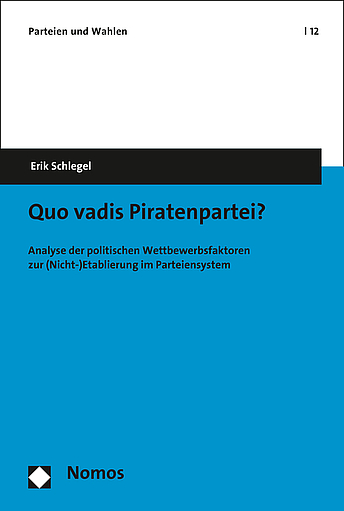englischBy examining the factors behind political competition, this thesis analyses the extent to which the Pirate Party has been able to establish itself in the German political party system. After developing a ten-step model which the author employs to classify parties, the study proceeds to outline a basic framework for the analysis and reviews the elements of supply and demand involved in political competition. As is typical of research into political parties, the study employs a variety of methods, and it not only contains a wealth of facts but also empirical data collected by the author.
This work precisely determines the extent to which a young party has established itself without focusing only on a particular zeitgeist. The analysis it contains encourages the reader to reassess sweeping judgments about the progress of the Pirate Party but is neither pessimistic about it nor tries to portray it in an overly positive light. It is based on a concept of establishment which highlights the totality of the factors behind political competition, which are different in their relevance.
Anhand politischer Wettbewerbsfaktoren analysiert die Arbeit die Etablierungsdimension der Piratenpartei im Parteiensystem. Nach der Entwicklung eines Zehn-Stufen-Modells zum Einordnen von Parteien gliedert sie sich in Rahmenbedingungen sowie Nachfrage- und Angebotsseite des politischen Wettbewerbs. Für die Parteienforschung typisch, bedient sich die faktenreiche und mit eigens erhobenen empirischen Daten unterfütterte Studie eines Methodenmixes.
Die antizyklisch angelegte Arbeit bestimmt präzise und ohne am Zeitgeist hängen zu bleiben den Etablierungsgrad einer jungen Partei. Sie regt dazu an, die pauschalen Urteile über den Fortgang der „Piraten“ anhand der differenzierten Analyse zu überprüfen. Gleichwohl bedient sie sich weder der Schwarzmalerei noch der Schönfärberei. Ihr liegt ein Etablierungsbegriff zugrunde, dessen Messbarkeit nicht per se gegeben ist: Vielmehr zeigt sich dieser als Gesamtheit der – in ihrer Relevanz unterschiedlichen – Wettbewerbsfaktoren.


